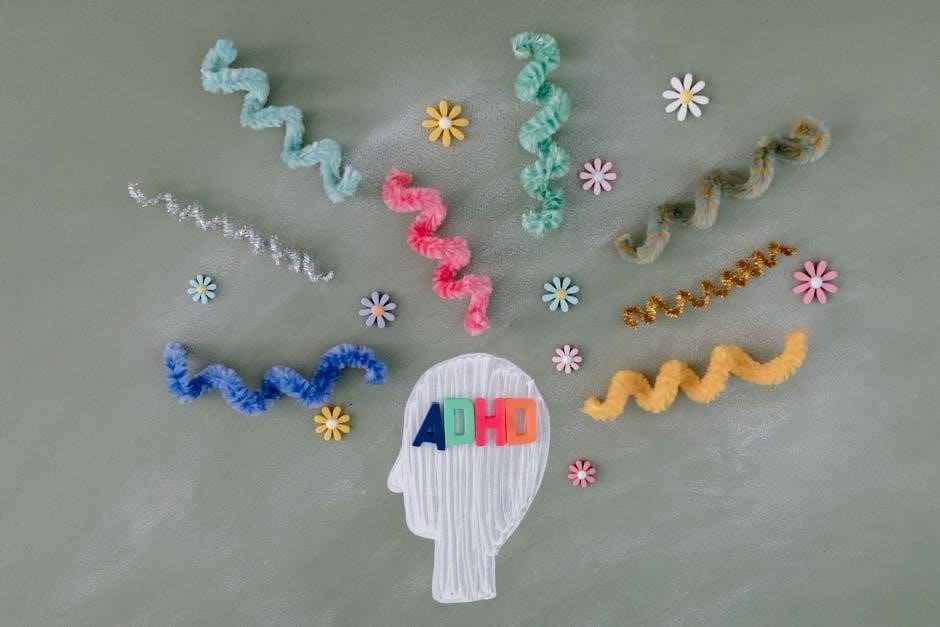David Klein’s organic chemistry resources‚ including his popular textbooks and solutions manuals‚ offer comprehensive coverage of fundamental topics‚ making complex concepts accessible through clear explanations and practical examples.
Overview of David Klein’s Contributions to Organic Chemistry
David Klein has significantly influenced organic chemistry education through his textbooks and resources‚ notably the “Organic Chemistry As a Second Language” series. His work emphasizes clear‚ approachable explanations‚ making complex concepts understandable. The 3rd‚ 4th‚ and 5th editions of his books‚ along with solutions manuals‚ provide comprehensive coverage of fundamental topics. Klein’s resources are widely sought after‚ with PDF versions available on platforms like 1lib.ch and Google Drive‚ reflecting their popularity among students and educators for effective learning and problem-solving.
Importance of the “Organic Chemistry As a Second Language” Series
David Klein’s “Organic Chemistry As a Second Language” series is renowned for its ability to simplify complex concepts‚ making organic chemistry more accessible. The series‚ available in multiple editions‚ including the 4th and 5th‚ provides a structured approach to learning‚ emphasizing problem-solving and practical examples. Its popularity stems from its clarity and effectiveness in helping students grasp fundamental topics. The series is widely sought after in PDF format‚ with many students and educators relying on it as a key resource for understanding and mastering organic chemistry.
Key Features of David Klein’s Organic Chemistry PDF
David Klein’s Organic Chemistry PDF offers clear explanations‚ practical examples‚ and problem-solving strategies‚ making complex concepts accessible in a comprehensive and organized format.
Clarity and Simplicity in Explaining Complex Concepts
David Klein’s resources excel in breaking down intricate organic chemistry concepts into digestible parts‚ using straightforward language and relatable analogies. His approach ensures that even the most challenging topics‚ such as reaction mechanisms and synthesis pathways‚ are presented with exceptional clarity. By focusing on essential principles and avoiding unnecessary complexity‚ Klein’s materials empower students to grasp foundational ideas without overwhelming them. This simplicity‚ combined with logical structuring‚ makes his PDFs invaluable for learners seeking a clear understanding of organic chemistry.
Practical Examples and Problem-Solving Strategies
David Klein’s organic chemistry resources are renowned for their abundance of practical examples and effective problem-solving strategies. His PDFs include real-world applications and step-by-step solutions‚ enabling students to master complex reactions and synthesis pathways. By emphasizing logical thinking and mechanism-based approaches‚ Klein equips learners with tools to tackle challenging problems confidently. The integration of practice problems and detailed explanations reinforces theoretical concepts‚ making his materials indispensable for both self-study and classroom use.
Comprehensive Coverage of Fundamental Topics
David Klein’s organic chemistry PDFs provide a thorough exploration of fundamental topics‚ ensuring a solid foundation for students. From basic principles to advanced concepts‚ his resources cover essential areas like molecular structure‚ reactions‚ and synthesis. The 3rd‚ 4th‚ and 5th editions are structured logically‚ offering in-depth coverage of key topics. This comprehensive approach helps students build a strong understanding of organic chemistry‚ making Klein’s materials a trusted choice for academic success.
Where to Find David Klein’s Organic Chemistry PDF
David Klein’s organic chemistry PDFs are available through official publisher websites‚ third-party platforms like 1lib.ch‚ and academic libraries‚ ensuring easy access for students worldwide.
Official Channels and Publisher Websites
David Klein’s organic chemistry resources are officially available through John Wiley & Sons‚ the publisher‚ ensuring authenticity and quality. The 4th edition and other versions can be purchased directly from their website. Additionally‚ the “Organic Chemistry As a Second Language” series is widely recognized and accessible via official channels. Students and educators can rely on these sources for accurate and comprehensive materials‚ including textbooks and solutions manuals‚ tailored to enhance learning experiences in organic chemistry.
Third-Party Platforms and Educational Resources
Third-party platforms like 1lib.ch and gen.lib.rus.ec offer free access to David Klein’s organic chemistry PDFs‚ including the 3rd‚ 4th‚ and 5th editions. These sites provide downloadable versions of the textbook and solutions manual‚ catering to students seeking affordable study materials. However‚ users should be cautious‚ as these platforms may host unofficial or outdated versions. It’s essential to verify the content’s accuracy to ensure it aligns with the official curriculum and doesn’t contain errors. Additionally‚ some platforms offer supplementary resources like study guides and interactive tools‚ enhancing the learning experience.

Academic Libraries and Institutional Access

Academic libraries often provide access to David Klein’s organic chemistry resources‚ including the textbook and solutions manual‚ through institutional subscriptions. Many universities offer physical copies or digital versions‚ ensuring students can access these materials without additional costs. Some libraries also provide interlibrary loan services‚ allowing students to borrow the book if it’s not available locally. This institutional access ensures students have reliable and up-to-date resources for their studies‚ aligning with curriculum requirements and fostering academic success.
The Role of the Solutions Manual in Learning

The solutions manual complements David Klein’s textbook by providing detailed answers to problems‚ enhancing understanding and problem-solving skills in organic chemistry.
How the Solutions Manual Enhances Understanding
The solutions manual provides detailed answers to textbook problems‚ clarifying complex concepts and reinforcing learning. It helps students identify mistakes‚ understand problem-solving strategies‚ and master organic chemistry fundamentals effectively.
Common Challenges in Solving Organic Chemistry Problems
Students often struggle with understanding reaction mechanisms‚ stereochemistry‚ and synthesis planning. Complex molecular structures and multi-step reactions can be overwhelming. Additionally‚ applying theoretical concepts to practical problems and identifying functional groups are common hurdles. The solutions manual by David Klein helps address these challenges by providing step-by-step explanations and practical examples‚ enabling students to grasp difficult topics more effectively and build confidence in their problem-solving abilities.
Comparing Different Editions of David Klein’s Textbook
Each edition of David Klein’s textbook builds on the previous‚ offering improved explanations‚ updated examples‚ and enhanced clarity‚ ensuring students receive the most comprehensive learning experience possible.

Key Differences Between the 3rd and 4th Editions
The 4th edition of David Klein’s organic chemistry textbook introduces updated content‚ additional practice problems‚ and enhanced clarity in explaining complex concepts. Compared to the 3rd edition‚ it offers improved organization‚ more detailed illustrations‚ and expanded coverage of key topics. While the 3rd edition remains a valuable resource‚ the 4th edition provides a more polished and comprehensive learning experience‚ making it a preferred choice for students seeking deeper understanding and better preparation for exams.
What’s New in the 5th Edition?
The 5th edition of David Klein’s organic chemistry textbook introduces new problem sets‚ enhanced digital integration‚ and expanded coverage of modern topics. It features improved clarity in explanations‚ additional interactive tools‚ and updated visual aids to facilitate learning. The edition also includes more emphasis on real-world applications and emerging trends in organic chemistry‚ making it a valuable resource for students seeking a contemporary and comprehensive understanding of the subject.

Student Resources and Study Guides
David Klein’s resources include supplementary materials like study guides‚ interactive tools‚ and online platforms‚ providing students with additional support to master organic chemistry concepts effectively.
Supplementary Materials for Effective Learning
David Klein’s resources include study guides‚ solutions manuals‚ and online tools‚ providing students with comprehensive support. These materials offer detailed explanations‚ practical examples‚ and step-by-step problem-solving strategies; Available in PDF and digital formats‚ they complement the main textbook‚ ensuring accessibility and convenience. The supplementary materials are designed to reinforce understanding‚ making complex organic chemistry concepts more manageable. They are widely praised for their clarity and effectiveness in aiding students’ mastery of the subject.
Interactive Tools and Online Resources
David Klein’s resources extend beyond textbooks with interactive tools and online platforms. Students can access practice problems‚ video tutorials‚ and digital flashcards. Online forums and study groups provide collaborative learning opportunities. Platforms like Google Drive and libgen offer downloadable PDFs and solutions manuals. These resources enhance engagement and accessibility‚ allowing students to study anytime‚ anywhere. They complement traditional learning methods‚ making organic chemistry more approachable and fostering a deeper understanding of key concepts.

Digital Accessibility and Convenience
David Klein’s organic chemistry resources are widely available in PDF format‚ offering convenience and portability. Students can access materials anytime‚ anywhere‚ facilitating flexible learning and study.
Benefits of Using PDF Versions
PDF versions of David Klein’s organic chemistry resources offer unparalleled convenience‚ enabling easy access and portability. Students can quickly search for specific topics‚ making study sessions more efficient. The format ensures compatibility across devices‚ allowing learners to access materials on laptops‚ tablets‚ or smartphones. PDFs also provide offline access‚ which is ideal for areas with limited internet connectivity. Additionally‚ digital versions reduce the need for physical storage‚ making them environmentally friendly and cost-effective for students seeking flexible learning solutions.
Compatibility with Modern Learning Platforms
David Klein’s organic chemistry PDFs seamlessly integrate with modern learning platforms‚ ensuring accessibility across various devices and operating systems. This compatibility supports online learning tools‚ enabling students to access materials effortlessly. The digital format adapts to different screen sizes‚ providing a consistent learning experience. Additionally‚ PDFs can be easily shared and uploaded to learning management systems‚ making them a versatile choice for both individual and institutional use‚ fostering a flexible and dynamic educational environment for students worldwide.
Impact on Organic Chemistry Education
David Klein’s resources have revolutionized organic chemistry education by making complex concepts accessible through clear explanations and practical examples‚ transforming how students engage with and understand the subject.
Transforming the Way Students Learn Organic Chemistry
David Klein’s resources have transformed learning by providing clear‚ accessible explanations and practical problem-solving strategies. His PDFs‚ including the 4th and 5th editions‚ are widely downloaded‚ offering comprehensive coverage of organic chemistry topics. Students appreciate the simplicity and effectiveness of his approach‚ which bridges gaps in understanding. Supplementary materials‚ like solutions manuals‚ further enhance learning. The digital accessibility of his work has made it a go-to resource for students globally‚ fostering engagement and deeper comprehension of complex concepts.
Feedback from Students and Educators
Students and educators widely praise David Klein’s resources for their clarity and effectiveness. Many highlight how his approach simplifies complex concepts‚ making organic chemistry more accessible. The PDFs‚ including the 4th and 5th editions‚ are frequently downloaded‚ with students appreciating the practical examples and problem-solving strategies. Educators commend the comprehensive coverage and the ability to engage learners. Feedback often emphasizes the value of supplementary materials‚ such as solutions manuals‚ in enhancing understanding and mastery of the subject.

Challenges and Considerations
Accessing David Klein’s PDFs raises concerns about copyright infringement and material quality. Ensuring legality and accuracy when downloading is crucial to avoid potential academic or legal issues.
Copyright and Legal Aspects of Sharing PDFs
Sharing David Klein’s organic chemistry PDFs without authorization violates copyright laws‚ potentially leading to legal consequences. Publishers like Wiley strictly enforce copyright protections‚ and unauthorized distribution is illegal. Users must obtain materials through official channels to avoid penalties and support authors’ rights. Legal access ensures compliance with intellectual property laws and maintains the quality of educational resources.
Ensuring Quality and Accuracy in Downloaded Materials
When downloading David Klein’s organic chemistry PDFs‚ ensure the source is reputable to maintain quality and accuracy. Official publisher websites or authorized platforms guarantee authentic content. Third-party sites may offer free access but often compromise on completeness or introduce errors. Always verify the edition and publication details to avoid outdated or incorrect material. Institutional access through libraries or academic portals is a reliable way to obtain high-quality‚ accurate resources for effective learning.
Future of Organic Chemistry Learning Resources

Enhanced digital content and interactive tools are shaping the future of organic chemistry learning‚ integrating with modern platforms‚ offering personalized learning experiences‚ led by innovative authors like David Klein.
Trends in Digital Educational Content
The rise of digital learning resources‚ such as David Klein’s organic chemistry PDFs‚ reflects a growing trend toward accessible‚ interactive‚ and adaptable educational materials. With the increasing popularity of online platforms‚ students now have unprecedented access to eBooks‚ solution manuals‚ and supplementary guides. These digital tools often include searchable content‚ interactive examples‚ and multimedia enhancements‚ making complex subjects like organic chemistry more engaging and easier to grasp. This shift underscores the importance of modernizing education to meet the needs of today’s learners.
Role of Authors Like David Klein in Shaping Education
Authors like David Klein play a pivotal role in shaping education by creating accessible‚ engaging‚ and comprehensive learning materials. Klein’s organic chemistry resources‚ including his textbooks and solutions manuals‚ have become indispensable for students and educators alike. His approachable writing style and ability to simplify complex concepts have set a new standard for chemistry education. By providing clear explanations‚ practical examples‚ and digital accessibility‚ Klein has empowered learners worldwide‚ demonstrating the impact of well-crafted educational content on student success and understanding.
David Klein’s organic chemistry resources remain invaluable for students and educators‚ offering clarity‚ practical examples‚ and comprehensive coverage‚ making complex concepts accessible and fostering deeper understanding.
Final Thoughts on the Value of David Klein’s Resources
David Klein’s organic chemistry resources‚ including his textbooks and solutions manuals‚ are invaluable for students and educators. His clear explanations‚ practical examples‚ and comprehensive coverage make complex concepts accessible. The “Organic Chemistry As a Second Language” series and supplementary materials like study guides and interactive tools enhance learning. Positive feedback from students and educators highlights their effectiveness in fostering understanding and problem-solving skills‚ solidifying their role as essential tools in organic chemistry education.
Encouragement for Further Exploration
Students are encouraged to explore David Klein’s resources‚ including his 5th edition textbooks and interactive tools‚ to deepen their understanding of organic chemistry. These materials‚ widely available online‚ offer practical examples and problem-solving strategies that enhance learning. By utilizing these resources‚ learners can build a strong foundation in organic chemistry and improve their academic performance. Embrace the opportunity to engage with Klein’s comprehensive guides and supplementary materials for a richer educational experience.

References and Further Reading
Explore David Klein’s 5th edition textbooks‚ solutions manuals‚ and supplementary materials for deeper study. Visit publisher websites‚ online platforms like 1lib.ch‚ and academic libraries for access.
Recommended Resources for Deeper Study
For advanced learning‚ explore David Klein’s 5th edition textbooks‚ solutions manuals‚ and study guides. Visit official publisher websites‚ platforms like 1lib.ch‚ or academic libraries for access; Supplementary materials‚ including interactive tools and online resources‚ provide comprehensive support. These resources offer in-depth insights‚ practical examples‚ and problem-solving strategies‚ ensuring a thorough understanding of organic chemistry concepts. Utilize these materials to enhance your study routine and grasp complex topics effectively.
Acknowledgments and Credits
Special thanks to David Klein for creating invaluable organic chemistry resources. His textbooks and solutions manuals have empowered students worldwide. Credit also goes to publishers like John Wiley & Sons for distributing his work. Digital platforms‚ libraries‚ and educational websites have made these resources accessible. The collaborative effort of educators‚ reviewers‚ and students has contributed to the refinement of these materials‚ ensuring their quality and relevance in organic chemistry education.







































